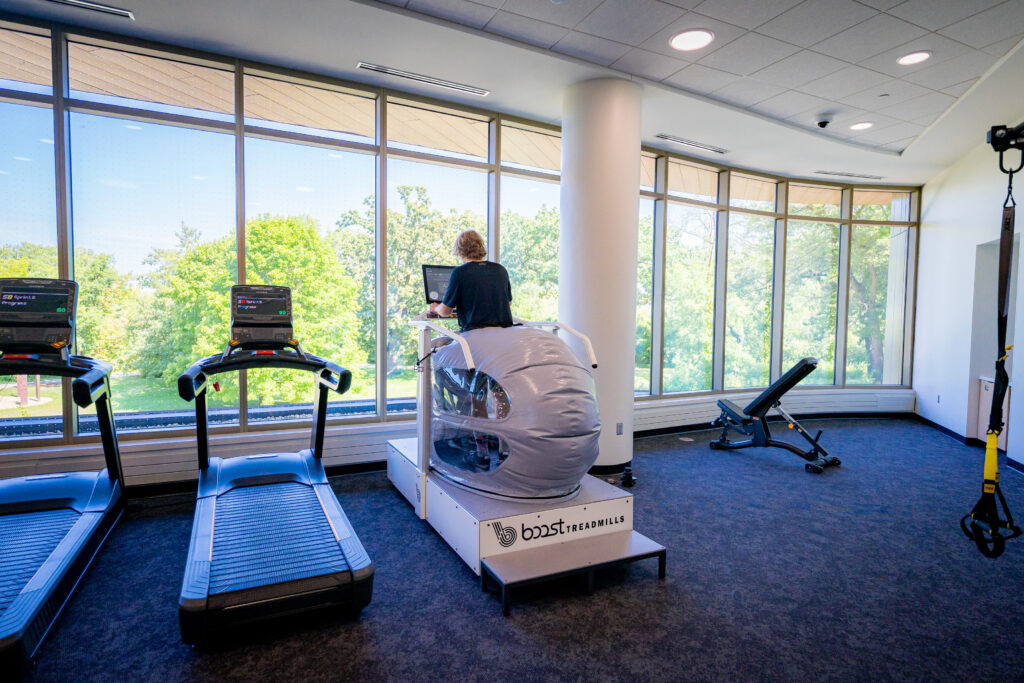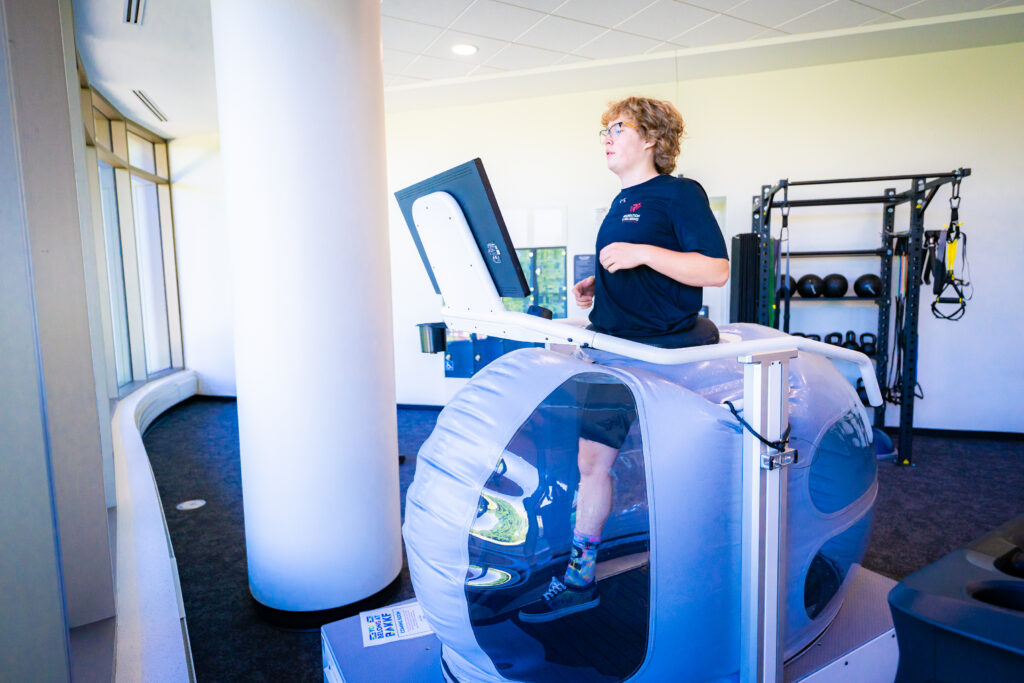
In the world of collegiate athletics, fancy, state-of-the-art facilities often cater to varsity athletes. Access to specialized training equipment is limited to these athletes and often does not expand into the general student population. But at the University of Wisconsin-Madison, a different perspective has emerged – one that emphasizes inclusivity and equal opportunities for all. Erin Clark, the Assistant Director of Athletic Training at the University’s RecWell, has been at the forefront of this transformation. In an interview with Erin, she shares her five-year journey at the University of Wisconsin-Madison and how the introduction of the Boost Treadmill has been a game-changer for both athletes and the broader community.
The Vision of Inclusivity

Erin’s arrival at Madison coincided with an exciting moment—the university was investing in new facilities, offering a unique opportunity for innovative ideas. Erin saw this as a chance to bridge the gap between varsity athletes and the general student and community population. Her goal was clear: everyone should have the opportunity to train like a varsity athlete.
The Madison Running Community
Madison is a hub for runners, boasting a vibrant running community with numerous races and a strong culture of fitness. As an AT in the student rec center, Erin works with many of these community members and students. She noticed the prevalence of injuries, especially stress-related ones, within this population. Her previous experience of dealing with similar injuries in intercollegiate athletics ignited the idea of providing specialized support to this running community.
Evolution of the Boost Treadmill
Erin’s initial wish for an AlterG® treadmill gradually evolved into something a little different—the Boost Treadmill. During her time working in intercollegiate athletics, Erin typically relied on the AlterG® Treadmill to deal with stress-related injuries. Once she began her new position at Madison, she discovered the Boost Treadmill through word of mouth and a visit to the local Matrix facility. It was clear that the Boost offered certain advantages, including quiet operation and ease of use, among many others. It was at this point when Erin made a really strong push for the Boost to make sure that it would be a piece of their building. What began as a desire to incorporate a microgravity treadmill into her clinical practice has now expanded to cater to a broader audience, including the general student population, running groups, and community members.
A New Approach to Athletic Training
In campus & recreation athletic training, the approach is akin to a primary care clinic, considering the vast number of students on campus. With 45,000 students – not even including the community members – the athletic trainers at UW Madison don’t have time to be checking in on them every day. They need to be able to see them, evaluate them, and then give them the tools to work on their healing for a 1-3 week period before reassessing the treatment plan – and the Boost Treadmill allows just that. With the Boost, students can use the tool independently to facilitate their recovery and training. This approach not only reduces the need for frequent appointments but also maximizes the resources available to students.
Empowering the Broader Community
The Boost Treadmill is not just for varsity athletes. By offering access to community members and fitness enthusiasts, the Boost has created an opportunity for those who might not otherwise have access to such innovative technology. It is not only a tool for recovery but also a means to educate users about alternative forms of exercise, making fitness both effective and enjoyable.
Launching the Reservation System + Gaining Traction

The university has also introduced a reservation system for the Boost Treadmill, allowing users to book a time slot and providing necessary gear for a one-hour session. Reservations for the Boost opened in July 2023, just prior to students returning to campus for the fall semester. Since then, the reception has been overwhelming with over 100 reservations. The staff is continuously learning how to operate and manage the Boost to meet the community’s needs. They have begun raising awareness about the Boost Treadmill, with information available on their website and news articles highlighting its benefits. It has also necessitated the education among staff and students on how the treadmill operates, what to use it for, etc. As education and awareness around the Boost continues to grow, they anticipate the popularity to follow.
Erin Clark’s journey at the University of Wisconsin-Madison is a testament to the power of innovation and inclusivity in the world of athletics and fitness. The Madison Boost Treadmill represents a bridge between varsity athletes and the wider community, empowering individuals to train like athletes. As Madison continues to refine its approach and expand access, it sets a remarkable example for institutions seeking to make fitness and health truly inclusive.
Interested in what it might look like to have a Boost Microgravity Treadmill in YOUR facility? CONTACT US and we’ll make it happen!
